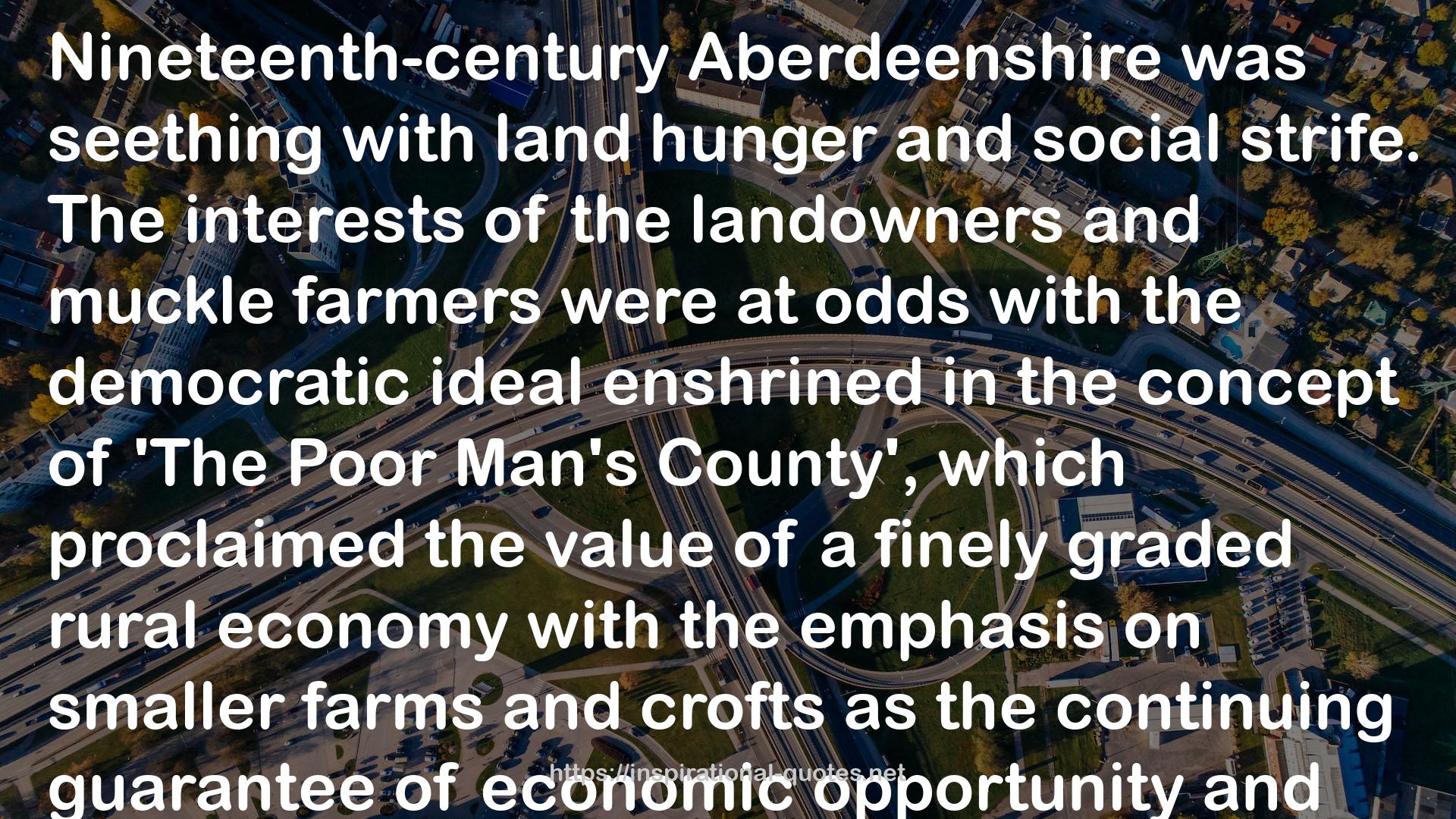" Nineteenth-century Aberdeenshire was seething with land hunger and social strife. The interests of the landowners and muckle farmers were at odds with the democratic ideal enshrined in the concept of 'The Poor Man's County', which proclaimed the value of a finely graded rural economy with the emphasis on smaller farms and crofts as the continuing guarantee of economic opportunity and ultimately, therefore, of social justice. But the cottar class was disappearing as landlords evaded Poor Law assessment by demolishing cottages for married workers. Traditional farm touns and hamlets were being destroyed. As leases expired, holdings were thrown together into bigger units yielding high returns on the kind of investment only great capitalists could contemplate. As entry levels into farming climbed, the land was monopolised in fewer and fewer hands. "
― William Alexander , Johnny Gibb of Gushetneuk in the Parish of Pyketillim, with Glimpses of the Parish Politics about AD 1843
